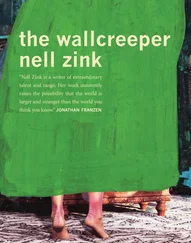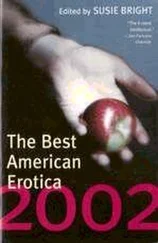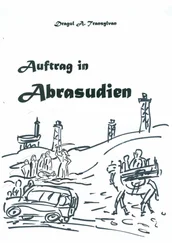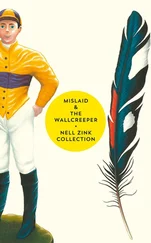At subsequent meetings, Meg went on to sing the praises of functional plumbing, heat in the winter, and modern electrical systems that don’t shock the kids every time they touch the filmstrip projector. There wasn’t a trace of separatism about her. She was so delightful and approachable! A natural ambassador of the newly ascendant educated black middle class. The newcomer mothers just loved her.
Two of them had founded a feminist encounter group. They discussed for months whether they might not invite a black woman one time, meaning Meg. Then their curiosity got the better of them, and they invited her.
The group’s founders had never been to any other feminist encounter group, but somewhat belatedly got the idea out of Ms. magazine. In between calls to action on the ERA and arousing tales of men who gave head, there appeared mentions of meetings at which women learned to speak openly about their concerns, their wishes and desires, and their bodies.
Once you go black, you’ll never go back, men were wont to say, but why is that? They all knew the joke about their flat noses (that’s where God braced his foot when he was stretching the first black man’s penis) and had heard inexact rumors of the Hottentot Venus. Such thoughts of racial “difference,” insinuated shyly at several encounter group meetings in a row, troubled the white liberal moms of the PTA but excited them as well. They planned to get answers from Meg if they could.
However, when Meg was ushered in, they happened to be talking about a course in sex magic you could take in Virginia Beach. “I wouldn’t take that course for a million dollars,” a woman said. “When they say life force, they mean sperm. You have to swallow, like he’s doing you this huge favor.”
Meg sat down in a big armchair and said, “I think the fluids might be a yoga thing. Like you’re handmaiden to the Dalai Lama, and you massage his root chakra, and he uses his penis to drink your menstrual blood like coming in reverse? Some guy told me about this one time.”
The women stared at her, captivated. Their knowledge of obscure sexual practices came almost exclusively from magazines (books such as The Joy of Sex were short on specifics, enjoining readers to follow their hearts), on very rare occasions from women whose husbands had returned from prison demanding things that demanded explanation, and 0 percent of the time from men. “What else did he say?” her hostess asked, her tone as encouraging as she could make it.
“I’m not sure. We were pretty buzzed. He was one of those people into Wilhelm Reich and Total Orgasm . What was it now? I know! I asked him about tantra, and he said the post-structuralist emphasis on jouissance is an artifact of a modern construct, sexuality. Or maybe it was the other way around. Jouissance means ‘orgasm’ in French.”
“Was he French?” She recalled that the French like black people, or might be black themselves — she wasn’t sure.
“They’re all French,” Meg said. “It’s like people used to just get it on, but modern science started sorting us into categories. So you get assigned this identity, like ‘straight woman,’ meaning woman who likes men. Except ninety-nine guys out of a hundred, if they touched you, you’d scream. And the hippies and the male chauvinists say the same thing, that sex is a form of play and you should relax. But what makes sex great is that it’s exciting. Sex isn’t relaxing! Relax and free your mind is what you have to do when somebody’s raping you! But that’s all men ever think about, getting you to relax so they can rape you and go to sleep.”
She surveyed the room to see how her audience was reacting. They were aghast.
Unable to backpedal, she decided to sum up. “So, the theory is basically that they had to define sexuality as a one-way street to orgasm so they could market it as a therapy that’s not predicated on attraction to a certain individual.” She concluded with a “Whew!” to show she was done. There was silence. Meg put her hand on her purse and glanced at the door, thinking it was time to leave.
“I think I know what you mean,” a woman ventured. “You’re in love with the wrong person, so you tell yourself you have needs and your husband can satisfy you.”
“It’s more like what society tells you,” Meg answered her. “It’s a way of labeling you. You fall in love with one man, so they tell you you’re into men, which is a joke. Nobody likes men . I mean, come on. Most of them are disgusting.”
An especially cute woman leaned forward and said quietly, “My husband makes me play that I’m a whore who’d do it with anybody or anything. I think he’s in love with my niece. My marriage is a joke, and his idea of a solution is to role-play that he’s a motorcycle cop. In the garage. He makes me keep my seat belt on. God, I hate that fucker. I fucking hate him.”
“That’s exactly it!” Meg said, inexpressibly delighted, yet worried, because everyone was taking her seriously and she had said way too much. “The idea is that the concept of sexuality was invented to stop us from stepping out of line and wanting people we’re not supposed to want.”
“What’s the guy’s name? Does he have a book out?”
“I don’t remember. Besides, I don’t know that he’s right.” She rose to their disappointment by adding, “I mean, he’s right about women, because women fall in love with individuals. But won’t guys fuck anything that doesn’t fuck them first?”
“My husband says he fell in love with me at first sight,” the cute woman said. “If that’s not proof, I don’t know what is.”
“Same with mine,” Meg agreed. “Love at first sight.”
“Where is he now?”
“He’s deceased. He was much older.” Meg shook her head and made a sad face, feeling ecstatic. Her first act on leaving the encounter group would be to find the cute woman’s motorcycle-cop husband and punch him in the nose. “He was an entomologist,” she added, feeling that an intellectual in the family might make her butchering of Foucault seem less out of place. “I’m finishing up his manuscript about the butterflies of southeastern Virginia. That’s why I live down here.”
When the feminist encounter group wound down, Meg rescued Karen from the group of kids out in the yard playing doctor and headed for the car, vaguely worried that she had blown her cover. She went over every moment in her mind. Somebody must have noticed something. Mustn’t they? It was so obvious that she could not possibly be anything she said she was — black, straight, an entomologist’s grieving widow. But no. No one had noticed a thing.
As she was preparing to drive away, a not-very-cute woman appeared at her window, introducing herself as Diane. Her husband was an electrical contractor, but she was nominally the owner of their business and not a housewife at all. There were government contracts for minority-owned businesses, and women were a recognized minority.
That made Meg laugh. “The majority of people are women!” she objected.
Diane replied, “Not in construction. It’s a great line of work. We’re cleaning up. I don’t want to say how good, but we’re doing all right. It’s a shame I never learned a trade.” She looked searchingly at Meg, eyes lingering on her V-neck, and Meg thought, Dyke.
Now, you’d think two dykes might be on the same team. But sexual deviance doesn’t trump anything. It just makes a person more paranoid. The weak are always the first to turn on each other in a clinch, like Peter denying Jesus three times before the cock crowed. If ever two deviants were on the same team, it was Jesus and the rock on which he would build his church.
To Meg, an unattractive lesbian was a clear and present danger: someone whose feelings she might hurt. There weren’t many of those in the county — people vulnerable to her — and maybe just one (Karen). Also, Diane was white, meaning she couldn’t be trusted. There was proof: a roadhouse named Ye Olde Coon Hunting Club with a big sign. Any well-intentioned white person would do something about the Coon Hunting Club before he or she started building schools.
Читать дальше
Конец ознакомительного отрывка
Купить книгу












